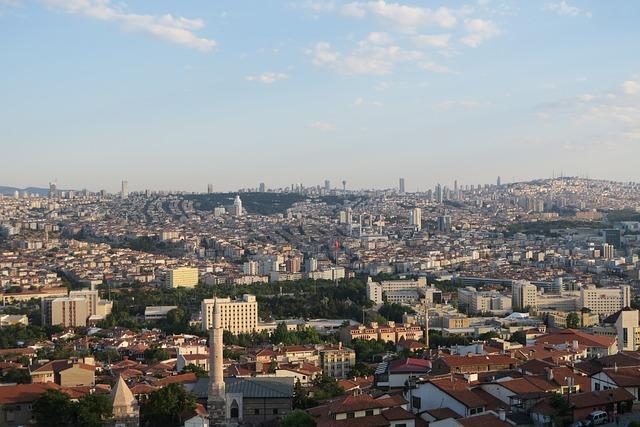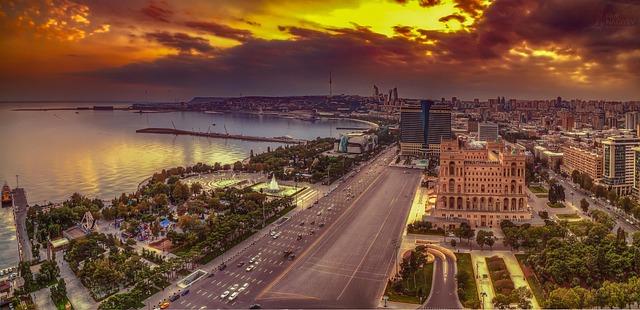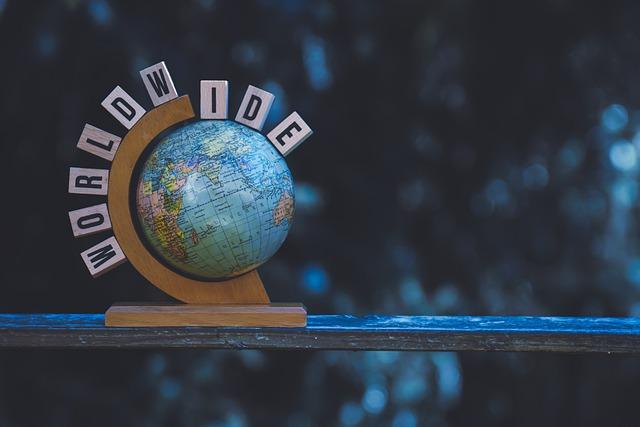Turkish Journalist Critiques azerbaijans function in Regional Tensions
A outstanding Turkish journalist has forged a crucial eye on Azerbaijan’s function in hindering the normalization course of between Yerevan and Ankara. In a current commentary, the journalist emphasised that Azerbaijan’s aggressive posture and provocative actions have made it more and more difficult for diplomatic efforts to take maintain. Highlighting incidents that occurred alongside the border, the article factors to a sample of intimidation techniques employed by Azerbaijan, which serve to escalate tensions fairly than promote dialog. Key factors mentioned embrace:
Army Maneuvers: Azerbaijan’s frequent navy actions close to the Armenian border are seen as a direct menace.Diplomatic Sabotage: Allegations that Azerbaijan has undermined peace talks by making use of strain on worldwide mediators.Inside Politics: The journalist means that home points inside Azerbaijan could also be contributing to this aggressive international coverage stance.
Moreover, the commentary underscores that Azerbaijan’s actions aren’t solely detrimental to armenian-Turkish relations but in addition pose a broader threat to regional stability. The journalist argues for a united stance from the worldwide neighborhood to advocate for enhanced engagement and dialogue, stressing that with out constructive participation from Azerbaijan, the potential for an enduring peace stays dim. A temporary comparability of the present diplomatic local weather illustrates a stark divide:
factorsYerevan’s ApproachBaku’s StanceInvitation for DialogueOpen to negotiationsClosed off, aggressiveInternational RelationsSeeking world supportIsolating itself geopoliticallyMilitary ActivityEmphasizes peaceIncreased provocations

Evaluation of the Yerevan-Ankara Normalization Course of
The normalization course of between Yerevan and Ankara has confronted necessary challenges,largely attributed to exterior pressures from azerbaijan. In current analyses, journalists have identified that regardless of the will from each Armenia and Turkey to have interaction in constructive dialogue, Azerbaijan’s actions and rhetoric seem aimed at impeding progress. Some key components contributing to this stalemate embrace:
Diplomatic leverage: Azerbaijan seeks to keep up its affect within the area, regularly sufficient threatening navy motion or showcasing its energy to deter any rapprochement between Armenia and Turkey.boundary and Territorial Disputes: the unresolved points stemming from the Nagorno-Karabakh battle proceed to forged a shadow over any normalization efforts, complicating bilateral relations.Public Sentiment: Nationalist sentiments in Azerbaijan can strain the federal government to take a hardline stance, main to a reluctance to help any constructive developments in Yerevan-Ankara ties.
Moreover, the dynamics within the south Caucasus tremendously have an effect on the negotiation panorama. The interaction of regional alliances provides one other layer of complexity, as Turkey and Azerbaijan’s partnership regularly sufficient helps the latter’s strategic goals. A current desk illustrates the timeline of key occasions affecting normalization:
DateEventImpact2022-12First official talks between Armenia and TurkeyHope for progress2023-03Azerbaijani threats issuedCaution in responses from Yerevan2023-08Declaration of help for Azerbaijan’s territorial integrity by TurkeySetback for normalization efforts

The Influence of Azerbaijans Actions on Armenian-Turkish Relations
A current commentary by a outstanding Turkish journalist has reignited discussions about the continued normalization efforts between Yerevan and Ankara, particularly highlighting the numerous function Azerbaijan performs in influencing these delicate relations. this perspective means that Azerbaijan’s continued assertiveness within the area acts as a main stumbling block to progress, complicating the delicate negotiations which have been on the desk for a while. The journalist posits that Azerbaijan’s navy maneuvers and geopolitical methods create an atmosphere of distrust that penetrates the Armenian-Turkish dialogue, making it more and more tough to obtain substantive outcomes.
The affect of Azerbaijan’s actions may be examined by means of numerous dimensions:
Army Provocations: Common navy workout routines and border skirmishes with Armenia typically function a reminder of unresolved tensions, inflicting Turkey to tread cautiously in its diplomatic outreach.Political Leverage: By sustaining a robust grip on regional politics, Azerbaijan makes use of its affect to strain Turkey, complicating its relations with Armenia.Vitality Dynamics: Turkey’s power pursuits in the area, significantly in fuel and oil, create a context in which Azerbaijani insurance policies can disrupt Armenian aspirations for normalization.
this advanced interaction underscores the need for a concerted effort not solely from Armenia and Turkey however additionally from worldwide actors to mediate and facilitate real dialogue, free from exterior pressures that hinder the trail ahead.

Suggestions for Strengthening Diplomatic Efforts
to boost diplomatic efforts between Yerevan and Ankara, stakeholders should take into account adopting a multifaceted method that prioritizes dialogue and trust-building measures. Establishing a impartial platform for discussions can present a conducive atmosphere for each events to deal with considerations brazenly. Key methods embrace:
Facilitating mediation by worldwide our bodies, such because the United Nations or the Group for Safety and Co-operation in Europe (OSCE), to guarantee impartiality within the negotiation course of.Implementing common dialogue channels between the governments, enabling well timed responses to any misunderstandings or disputes that will come up.Encouraging people-to-people initiatives, together with cultural exchanges and joint neighborhood tasks, to foster mutual understanding and goodwill between the populations.
Furthermore, incorporating a timeline with accountability measures can hold each nations dedicated to the normalization course of. It is important to create a clear framework outlining particular objectives and deadlines. A proposed timeline may look like this:
TimeframeAction ItemResponsible PartiesMonth 1Initiate high-level talksForeign Ministers of Armenia and TurkeyMonth 3Establish communication channelsDiplomatic groups from each nationsMonth 6Launch cultural change programsCultural ministries and NGOs

Worldwide Reactions to the Stalled Normalization Agenda
The current assertion by a outstanding Turkish journalist alleging that Azerbaijan is the main impediment to the normalization of relations between Yerevan and Ankara has drawn vital worldwide reactions. Analysts recommend that this declare displays a broader sentiment inside Turkey, emphasizing the complexities of regional alliances and hostilities. Varied nations have been monitoring these developments carefully, fostering discussions in regards to the implications for regional stability. Key reactions embrace:
The European Union has referred to as for dialogue, supporting a mediated method to resolve the tensions and urging each nations to recommit to the peace course of.The United States expressed concern over Azerbaijan’s function, highlighting the potential safety ramifications for the South Caucasus area.Russia, historically a mediator in this battle, has supplied to facilitate discussions but in addition pointed out that each nations must present extra dedication.
in mild of those reactions, worldwide observers have gotten more and more vocal concerning the necessity for a renewed diplomatic effort. Considerations have arisen concerning the implications of a stalled normalization agenda, significantly by way of regional geopolitics. Consultants emphasize that the drawn-out deadlock may result in elevated tensions not simply between Armenia and Azerbaijan but in addition have an effect on Turkey’s broader international coverage. A comparative take a look at the important thing gamers’ positions reveals a stark divide:
ContryPosition on AzerbaijanStatementEUNeutral mediationSupports dialogue for peaceUSACritical of AzerbaijanConcerned about safety impactsRussiaMediation OfferUrges dedication from either side

Future Prospects for Peace within the South Caucasus Area
The longer term of peace within the South Caucasus area hinges considerably on the bilateral relations between Armenia and Turkey. Latest claims by a Turkish journalist indicating that azerbaijan is impeding the normalization course of between Yerevan and Ankara sign a crucial juncture in regional diplomacy. The complexity of this relationship stems from historic grievances and territorial disputes, which require cautious navigation. For a constructive dialogue to emerge, it is certainly important for all events concerned to foster an atmosphere of belief. Key components to take into account embrace:
Diplomatic Engagement: Open strains of communication between Armenia, Turkey, and Azerbaijan are very important.Worldwide mediation: The involvement of third-party nations or organizations may facilitate negotiations.Public sentiment: Addressing the considerations and feelings of populations will likely be essential for lasting peace.Financial Incentives: Creating financial ties may function a catalyst for improved relations.
Furthermore, a shift in regional dynamics, influenced by geopolitical components and alliances, performs a vital function in shaping the prospects for lasting peace.Ought to Azerbaijan proceed to exert affect over the normalization talks, the stability of energy might hinder vital progress. Nonetheless, if Armenia can leverage help from worldwide stakeholders, the potential for constructive engagement will increase. The following desk highlights potential areas of cooperation that might improve diplomatic ties:
Space of CooperationPotential BenefitsTrade RelationsBoost economies and create interdependence.Cultural exchangeBuild mutual understanding and cut back animosities.Joint Infrastructure Projectsenhance connectivity and collaboration.
The Conclusion
the continued tensions between Turkey and Armenia, significantly of their efforts to normalize relations, proceed to evoke robust sentiments from numerous stakeholders. The claims made by the Turkish journalist concerning Azerbaijan’s affect in stalling the course of make clear the complexities and geopolitical intricacies of the South Caucasus area.As each Yerevan and Ankara navigate these turbulent waters, the involvement of regional gamers like Azerbaijan provides one other layer of problem to diplomatic endeavors. The way forward for Armenian-Turkish relations hangs in a fragile stability, and the developments within the coming months will likely be crucial in shaping this traditionally fraught but pivotal relationship.Continued dialogue and mutual understanding stay important if each nations are to overcome the obstacles which have lengthy hindered peace and cooperation.
Source link : https://europ.info/2025/03/19/azerbaijan-2/turkish-journalist-blames-azerbaijan-for-stalling-yerevan-ankara-normalization-armenian-news-by-massispost/
Writer : Jackson Lee
Publish date : 2025-03-19 19:43:00
Copyright for syndicated content material belongs to the linked Source.



